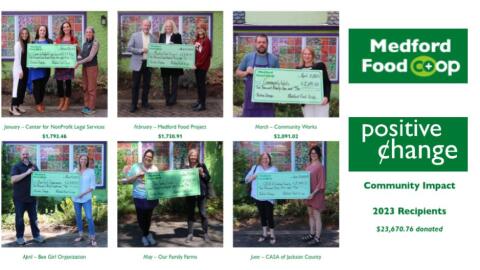-
Medford Food Co-op offers another dimension through its Positive Change Program. Medford Food Co-op Outreach Manager Halle Riddlebarger visits with details.
-
What to make of all the student loan news this year? We have three takeaways, and a literary analogy (it's NPR afterall).
-
Historic as the UAW strikes may be, analysts say the actions are unlikely to impact car prices too much — for now. A new strike on parts distribution centers, however, could sting.
-
Insurance Commissioner Ricardo Lara unveils a plan to shore up the California insurance market for homeowners. Insurers would return to wildfire zones, but would have an easier path to rate increases.
-
Saddled with debt from health care, many Americans are forced into painful tradeoffs. And some are losing their homes.
-
The cost of health care continues to increase in Oregon, forcing residents to dig into their savings, forgo care and rack up medical debt, according to a state report.
-
The average Oregonian who buys health insurance on the individual marketplace will see costs increase 6.2% in 2024 after state regulators approved final rates.
-
West Coast states continue to have the highest average gas prices in the country.
-
State regulators want to hear from Oregonians about insurance companies’ plans to increase costs in 2024.
-
Consumers should know that medical identity theft can happen, whether from a large-scale breach or theft of an individual's data. The result could be thousands of dollars in medical bills.
-
The student loan payment pause ends this fall, and close to 4 million Californians with student loan debt are set to resume payments starting Oct. 1. Loans will begin accruing interest a month before, on Sept. 1.
-
California’s electric rates are among the highest in the country. Three big power companies propose charging fixed rates based on income, saying low-income customers will save money. Critics doubt it’ll work.
-
It's increasingly expensive and difficult to get home insurance, as losses rise from climate-driven disasters such as wildfires and hurricanes. And the solutions aren't always politically popular.
-
Borrowers who had been making payments for 20 or more years and should have had balances forgiven will finally see an end to their bills.















